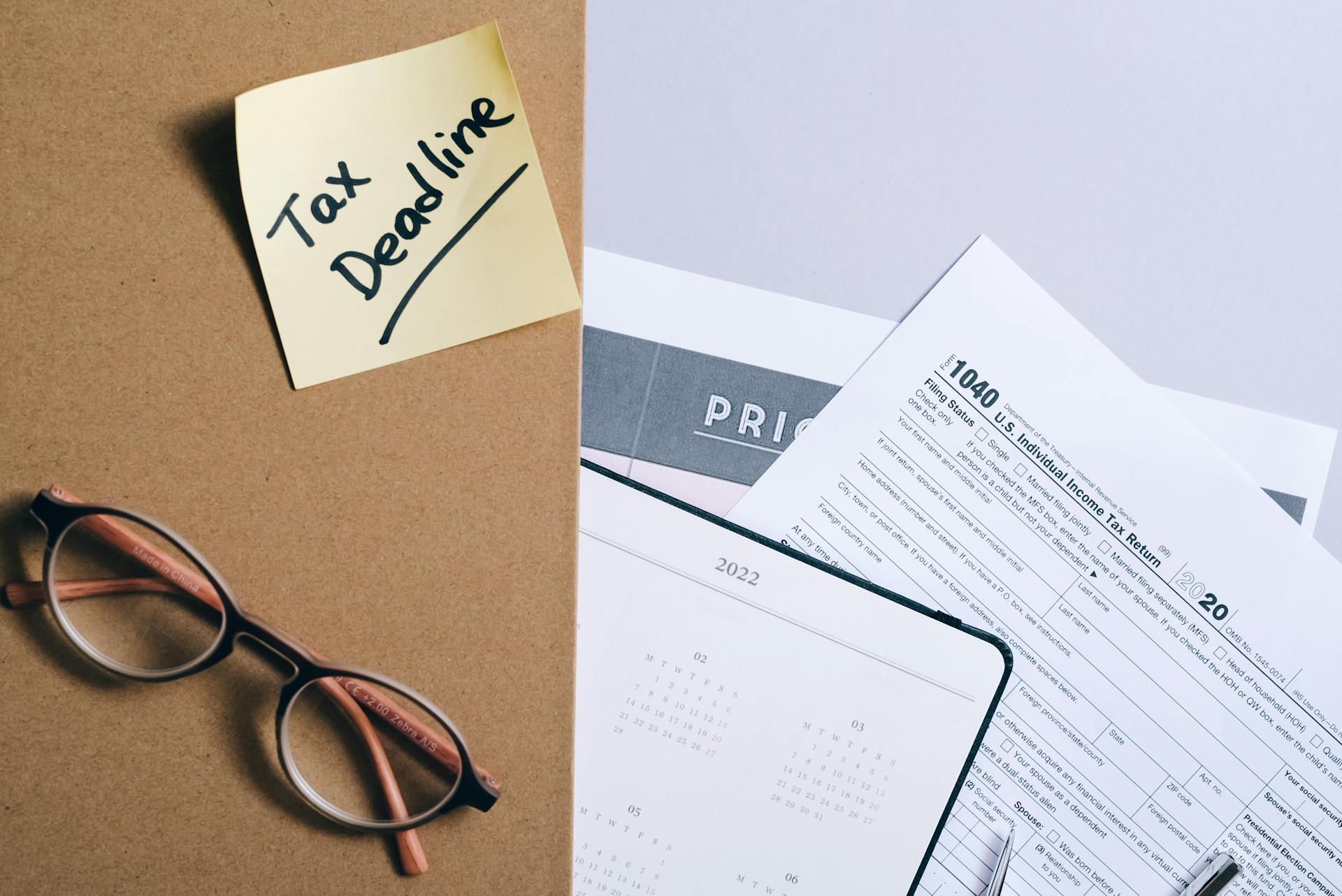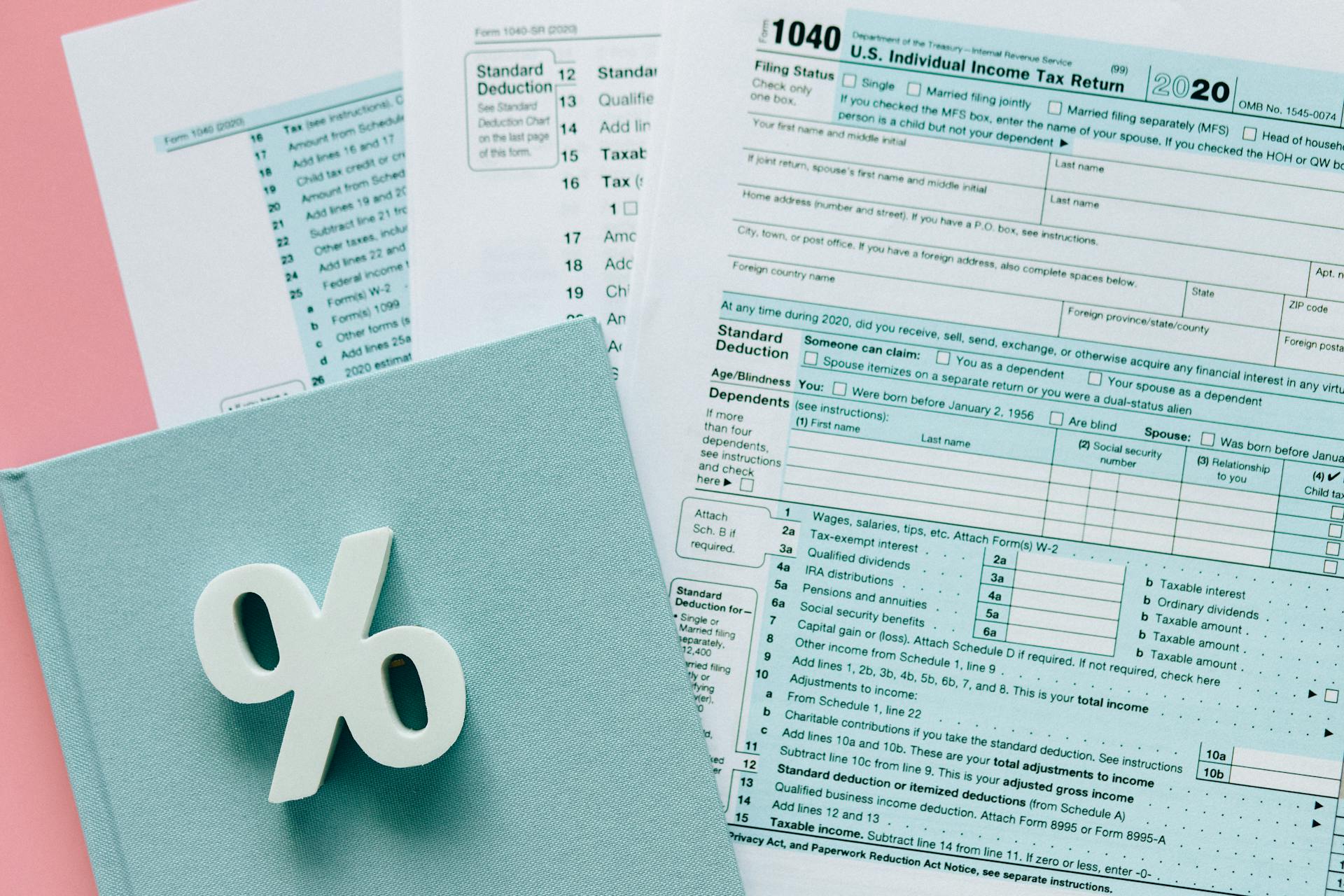
Commercial surety bonds are a type of three-party agreement that guarantees a business's obligations will be met. This can be a lifesaver for small business owners who need to secure contracts or licenses.
A commercial surety bond is essentially a promise to pay if the business fails to fulfill its obligations. This can be a contractor who doesn't complete a project, a company that doesn't pay its taxes, or a business that fails to meet the terms of a contract.
The cost of a commercial surety bond varies depending on the type of bond, the business's credit score, and the amount of the bond. In general, a business can expect to pay between 1-3% of the bond amount annually.
Commercial surety bonds are often required by government agencies, licensing boards, and private companies as a condition of doing business. This ensures that businesses have a financial incentive to fulfill their obligations.
Explore further: Can My Business Pay for My Car Insurance
What is a Commercial Surety Bond?
A commercial surety bond is a type of surety bond required for a commercial business.
Car dealerships, cleaning services, and general contractors are common examples of businesses that purchase commercial bonds.
Many businesses need a commercial surety bond to operate, but it's not a requirement for all businesses.
A commercial bond is typically required by law or by a government agency, such as a licensing authority.
Types of Commercial Surety Bonds
Commercial surety bonds come in various forms, each serving a specific purpose for businesses operating in the State of Florida.
One type of commercial surety bond is the Florida Alcoholic Beverages and Tobacco Bond, which guarantees that a business will pay all appropriate taxes and follow State regulations.
For businesses involved in the sale of lottery tickets, a Lottery Bond is typically required to ensure compliance with state laws.
Some commercial bonds are tied to specific industries, such as the Sales Tax Bond, which is required for businesses that sell taxable goods.
Check this out: Florida Business Insurance Requirements
Other types of commercial bonds include the Taxable Fuel Bond, Utility Bond, and Wage and Welfare Bond, all of which aim to protect the state and its citizens from potential losses or non-compliance.
Here are some examples of commercial bonds that are required by the State of Florida:
- Florida Alcoholic Beverages and Tobacco Bond
- Lottery Bond
- Sales Tax Bond
- Taxable Fuel Bond
- Utility Bond
- Wage and Welfare Bond
Types of
Commercial bonds can be either surety bonds or fidelity bonds, with surety bonds being the more common type.
Surety bonds are often required for businesses that need to guarantee their performance or compliance with regulations.
They can be used to secure licenses, permits, and contracts, or to ensure that a business meets specific standards.
Fidelity bonds, on the other hand, are typically required for businesses that handle large amounts of money or valuables.
They protect against employee theft or dishonesty, and can be a requirement for certain types of businesses.
Depending on the type of business you own, you might need one over the other, or even both types of bonds.
Readers also liked: What Type of Business Insurance Do I Need
Other Types
In addition to the main types of commercial surety bonds, there are some other types that are required by the State of Florida for certain businesses and industries.
Some of these bonds include the Florida Alcoholic Beverages and Tobacco Bond, which guarantees compliance with state regulations.
These bonds are not optional, and businesses that operate in industries like lottery sales, sales tax collection, and utility provision must obtain them.
Here are some examples of these required bonds:
- Florida Alcoholic Beverages and Tobacco Bond
- Lottery Bond
- Sales Tax Bond
- Taxable Fuel Bond
- Utility Bond
- Wage and Welfare Bond
These bonds ensure that businesses pay all required taxes and follow state regulations.
Cost and Pricing
The cost of commercial surety bonds can vary depending on several factors. Some bonds are instantly issued, with a fixed premium of 1-3% of the bond amount.
The cost of most commercial bonds depends on the type of bond, the amount of risk, and the term length. If underwriting is required, the bond price will vary based on factors such as credit score and personal or professional qualifications.
Applicants with good credit are typically approved within the 1-3% rate range, while those with lower credit will pay a slightly higher premium.
Some bond prices are the same throughout all 50 states, such as the freight broker bond, which costs $75,000. Most other bonds, however, vary in cost from state to state.
Commercial bond insurance costs can often be quoted without a credit check, and when this is the case, the cost is generally between 1% and 3% of the face value of the bond itself.
Fidelity bonds are anywhere from $200-1,000 a year, depending on your coverage limit. Surety bonds are usually a one-time payment equal to 2-5% of the project cost.
Here's a rough estimate of the costs involved:
The cost of a surety bond will typically cost 1%-15% of the amount of the bond.
Getting a Commercial Surety Bond
To get a commercial surety bond, you'll need to work with a surety company or insurance agent who carries them. They'll typically ask for information about who is requesting the bond, the type of work you're performing, and the type of coverage the bond has.
A fresh viewpoint: How Does Small Business Health Insurance Work
You may be asked to provide financial and tax statements for both the LLC and corporation, as well as personal financial information for all owners and officers of the organization. This is especially true for certain types of bonds.
The process of obtaining a surety bond can vary depending on the circumstances of your application and the surety you work with. Research state or industry requirements to determine how laws and regulations impact surety bond requirements.
A good place to start is by finding a company you trust, which should be a state-approved and licensed business with many years in business and a dedicated team of specialists. You can check out the U.S. Small Business Administration's surety bond agency directory for agencies in your state.
To determine the price of your premium and the amount of the bond, you'll typically need to get a background check. This will involve the surety looking at your credit report and business's financial history to determine the risk level of your bond.
The bond premium will generally range from 1%-15% of the bond amount, and you'll typically pay for premiums annually. If the U.S. Small Business Administration guarantees the surety bond, you'll receive an additional fee, but it will be easier for your business to obtain a bond.
Here are the general steps to obtaining a surety bond:
- Research state or industry requirements
- Find a company you trust
- Get a background check
- Receive a bond premium
- Sign the necessary paperwork and pay the premium
- Hand over your bond information to the government agency or industry organization
Advantages and Disadvantages
Commercial surety bonds offer several advantages, including reduced financial risk for businesses and increased credibility with clients. This is because a surety bond provides a guarantee that a company will fulfill its obligations, giving clients confidence in the business.
By requiring a surety bond, a government agency or private company can ensure that a contractor or business will complete a project as agreed upon, reducing the risk of financial loss.
One of the main advantages of commercial surety bonds is that they can help a business qualify for larger contracts and projects that would be out of reach without one. This is especially true for small businesses or startups.
A surety bond can also help a business recover from financial setbacks, such as a natural disaster or economic downturn, by providing a financial safety net.
However, commercial surety bonds also have some disadvantages, including the cost of obtaining and maintaining the bond. The cost can be a significant expense for a business, especially if the bond is required for a large or complex project.
Another disadvantage of commercial surety bonds is that they can be difficult to obtain, especially for businesses with poor credit or a history of financial issues. This can make it challenging for some businesses to secure the bonds they need.
If this caught your attention, see: Health Insurance for Small Business with One Employee Cost
Commercial Surety Bond Requirements
Commercial surety bonds are often required by government entities, such as cities and counties, to ensure contractors complete projects according to laws and regulations.
Your customer may also require a commercial bond as a guarantee of good faith. This assurance gives your customers confidence that they will receive what they paid for, even if you don't complete the work.
Government entities require commercial bonds to protect third parties and ensure contractors comply with applicable laws and regulations. This is especially important for projects that involve public safety, such as hanging signs over public sidewalks.
Here are some common reasons why government entities require commercial bonds:
- Ensure the contractor with the lowest bid will complete the job and do it well.
- Guarantee indemnity to third parties in case of accidents or injuries.
What's Required?
So you're wondering what's required when it comes to commercial surety bonds? The primary reason you might need one is that your customer requires you to. Government entities often demand bonds to ensure contractors will complete the job well and comply with laws and regulations.
Some contractors are required to get a bond to pull a permit to work within a city, county, or other local government jurisdiction. This is a common requirement for sign businesses that need to hang signs over public sidewalks.
On a similar theme: Does My Business Insurance Cover Independent Contractors
Government entities want to guarantee compensation for injuries to pedestrians, so they require bonds to cover this risk. This shows that bonds are not just a formality, but a genuine attempt to protect the public.
Here are some examples of industries that require license and permit bonds:
- Professionals who work in a wide array of industries
Commercial bonds are an act of good faith, giving customers the assurance that they'll get what they paid for, even if the contractor doesn't complete the work. This is especially important in situations where standard general liability insurance won't cover the costs.
Erisa
ERISA is a type of bond that insures people who participate in employee benefit plans from dishonest acts by plan administrators. ERISA bonds are a crucial requirement for companies that offer these plans to their employees.
An ERISA bond protects plan participants from mismanagement of their benefits, ensuring their funds are handled honestly and in good faith. This protection is essential for maintaining trust between employers and their employees.
ERISA bonds are specifically designed to cover losses resulting from dishonest acts, such as embezzlement or theft, by plan administrators.
Broaden your view: Fl Small Business Group Life Insurance Plans
Frequently Asked Questions
What are the three types of surety bonds?
There are three primary types of surety bonds: Bid Bonds, Performance Bonds, and Payment Bonds. These bonds provide essential financial protection for construction projects in California and beyond.
Sources
- https://chambers.com/articles/commercial-surety-bond-concept-advantages-and-disadvantages
- https://www.suretybonds.com/commercial
- https://www.nfp.com/insights/what-is-a-commercial-bond/
- https://www.harrylevineinsurance.com/what-are-commercial-bonds/
- https://www.legalzoom.com/articles/understanding-4-types-of-surety-bonds
Featured Images: pexels.com


